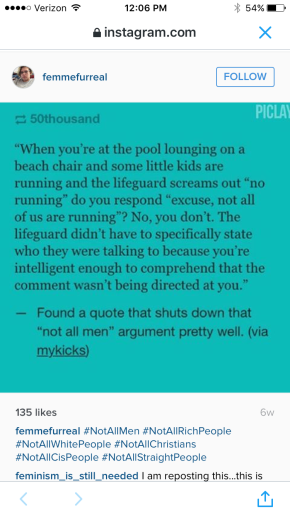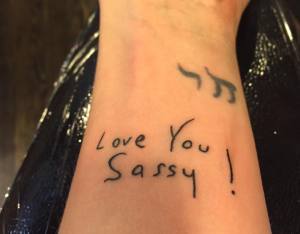Sarahbeth Caplin's Blog, page 41
November 9, 2015
Starbucks red cups and the ugliness of Christian culture
 I’m sad today, guys. I’ve been sad all weekend, ever since the War on Starbucks Red Cups broke loose. In case you’ve been living under a rock, Starbucks opted for plain red cups this holiday season – no snowmen, ice skates, or any other designs that, you know, represent the true meaning of Christmas. And Christians all over the Internet have lost their ever-loving minds.
I’m sad today, guys. I’ve been sad all weekend, ever since the War on Starbucks Red Cups broke loose. In case you’ve been living under a rock, Starbucks opted for plain red cups this holiday season – no snowmen, ice skates, or any other designs that, you know, represent the true meaning of Christmas. And Christians all over the Internet have lost their ever-loving minds.
This is one more splinter in the table representing Christian culture on one end, and Christian faith on the other. I have felt welcome at one end of this table, but not the other. Sometimes, it’s been extremely difficult to decipher which end is which. You wouldn’t think that saying “Merry Christmas” over “Happy Holidays” is a central tenet of Christianity, but the culture would have you think otherwise. You wouldn’t think that martyr-bating to images of persecution is the eleventh commandment, but again, Christian culture will have you believe that is so. I’ve made the mistake of debating these things with Christians in small group discussion over the years, and like most debates over religion, I left feeling like an “other.” Like a child being told to “shush,” the adults are talking.
I wish this was an instance where I could chant, “Not my circus, not my monkeys,” but the fact of the matter is, if I am to call myself a Christian, then this is my circus, and these are my monkeys. And that’s embarrassing. True, my close Christian friends are in agreement that this whole thing is ridiculous, but to the world at large (or at least to the rest of the country), Christians are becoming known more for what they choose to boycott than what they actually stand for. And while I don’t believe it’s my responsibility to apologize on behalf of other people, I still feel an urge to add a “but…” whenever I profess to be a Christian: “I’m a Christian, but I know I have extreme privilege in the US, and this red cup hullabaloo is ludicrous.”
It’s no surprise, then, that when shit like this breaks out, I feel an urge to dig into the Jewish culture that I’m still intimately familiar with. I feel I’d rather spend my time with people who don’t need to go looking for reasons to feel persecuted, because we know how ugly it is – and we know it’s still happening. To be perfectly honest, it scares me to go into a church and look at the people around me, wondering who in this congregation buys into the lie that their faith is under attack. It’s beyond insulting to even suggest it to a person whose ancestors were literally chased out of Europe. I’ve completely lost my tolerance for this crap. I will literally have to walk away from anyone who peddles this nonsense before I say something like, “Try moving to Iran if you want to experience legitimate persecution, jackhole.”
I can’t fellowship with people who shell out cash for their entire bible study to see films like God’s Not Dead and make a huge stinking deal of boycotting secular coffee companies. And it’s not enough of a comfort to hear that not all Christians are like that, either. My allegiance feels like a pendulum, swinging back and forth toward whichever group is most rational, most understanding. And as much as I know in my heart that faith and culture are separate entities, it’s increasingly difficult to view the faith as something unique and beautiful when its surrounding culture is so damn ugly.
Filed under: Religion Tagged: Christian culture, Christianity, Controversy, evangelicals, First World Problems, Judaism, prosperity gospel, social justice, Spiritual Abuse, Starbucks








November 8, 2015
Memoirs as church
Sometimes I wonder if I’ve become a really devout agnostic – I collect theology books like Halloween candy. If one of my favorite faith bloggers has a book coming out, I want it. If there’s an apologetics book being critiqued or reviewed on Patheos, I want it. Part of me hopes that the more I immerse myself in this stuff, the more likely something will “click” again. I also own multiple biblical commentaries from Jewish and Christian scholars, because I just have to know everything from all sides. Gregory Boyd’s Across the Spectrum is scheduled to arrive on my doorstep this Wednesday, and today I stumbled upon Between Gods by Alison Pick, which I had to buy despite my to-read list being a mile long already. Like that’s ever stopped me – I’m eager for Thanksgiving break to hurry up because I am so excited to do nothing but sit in a coffee shop and read!
It’s in the pages of these books that I experience church. They don’t replace in-person community and dialogue (though as an introvert, sometimes I wish they did), but as many a bibliophile will tell you, there are times when the words of people you meet in books get lodged in your soul like no one else can.
This is a passage from Out of Sorts by Sarah Bessey that I read this morning:
Scholarship is important, but sometimes I prefer the books written by “normal people,” because most of us will never be bible scholars. Most of us are students, parents, full-time job holders, and community builders. Some truths cannot be understood in a vacuum – I think some are best understood in the context of our daily lives. For people like Bessey, the virtue of “faith like a child” is made clear when parenting her own. For people like me, sanctification – the process of being made holy – is best understood in a school called marriage.
Books like Bessey’s don’t replace the Bible, but they help bring it to life in new ways, which is refreshing for a skeptic who skips certain passages to avoid anxiety triggers. Books like these remind me to focus on the little snippets I do understand rather than try to move mountain-sized puzzle pieces with strength I have to fake in order to “make.”
The fact that my faith feels threadbare may make it seem like I’m completely unqualified to write a similar book of my own. Then again, I’d like to think that’s exactly why I’m qualified. I’ve come to believe that everyone I meet is some kind of teacher. Not all of their lessons are positive, but each of us brings something unique to the table that can’t be replicated or experienced quite the same by anybody else. It is for that reason I’ve given up the habit of determining who is “in” and who is “out” in the Christian faith. With 40,000 denominations in circulation since the early church, I am definitely one of the least qualified to make that judgment call.
I think there are going to be a lot of shocked people in heaven one day.
Filed under: Religion, Writing & Publishing Tagged: Author Sarahbeth Caplin, Christian culture, Christianity, Controversy, evangelicals, marriage, memoir, Writing








November 7, 2015
Why the #NotAll[blank] defense harms more than helps
 Up until recently, I was one of those people who would use the Not All [blank] defense to comfort a hurting soul: “It’s okay, not all men are assholes.” “Not all Christians hate homosexuals.” ”Not all white people are racist.”
Up until recently, I was one of those people who would use the Not All [blank] defense to comfort a hurting soul: “It’s okay, not all men are assholes.” “Not all Christians hate homosexuals.” ”Not all white people are racist.”
Only recently did I realize that using this line as comfort is the verbal equivalent to using a scented aerosol spray can at a garbage dump. It permeates a small space temporarily, but does nothing to remove the larger stench.
I think, when it comes down to it, rational people already know that “not everyone” shares the same negative traits. The Not All [blank] defense doesn’t do much to improve a very specific circumstance. A woman who is afraid to begin a new relationship when she still carries baggage from the previous one likely already knows Not All Men are like what’s-his-face who caused her pain, and saying Not All Men trivializes her need to heal from the hurtful experience with one specific man.
In my case, Not All Christians trivializes my need to heal from the hurtful words of a few specific Christians, a few specific church groups. When I say I’m taking a sabbatical from church, I mean I’m too burned out to keep going right now.
I got the Not All Christians defense during one of the last times I explained this to an acquaintance. My response was to blink a few times and say, Yeah, I get that. But I’m not talking about all Christians and all churches here. I’m only talking about me.
A statement can be both true and unhelpful, and Not All [blank] is exactly that. It’s hard to imagine that a well-intentioned statement can cause division, but it does. The truth of the matter is, whenever someone tells me Not All [blank], it makes me feel “othered.” It makes me feel even more isolated; that my situation is so unusual and so “out there” that it doesn’t deserve a thorough reflection. Furthermore, if you’re one of those people that the Not All [blank] line applies to, then you have no reason to feel threatened.
When you show people you are “not like that” through your actions, you make more of an impact than simply insisting you are different.
Filed under: Religion Tagged: Christian culture, Christianity, self-care, Spiritual Abuse








November 5, 2015
The stories on my skin
I’m probably not the only writer with this problem, but I sometimes have trouble keeping my words on the page (physical or digital). Over the last few years, some of them ended up on my body. Some were planned for months, others more spontaneous, but nevertheless, they all have meaning.
My first tattoo was done during my senior year of college. Admittedly, it’s not my best; I drew the Hebrew “life” symbol for the artist, and it’s definitely the tattoo I spent the least amount of money on. But it’s special to me because it was my way of co-opting the Caplin male tradition of wearing the chai symbol on a chain. It was my way of proving to my father that Judaism still meant something to me. As a man who didn’t understand the appeal of body ink, this choice seemed okay with him. More than okay, in fact.
And since they’re so close together, I’ll just skip ahead to my most recent tattoo, done on September 25th, the one-year anniversary of my father’s death. I was cleaning out my closet and discovered a letter from Dad when he mailed the social security card I left behind in Ohio. He ended it with, “Love, you Sassy!” His special nickname for me for as long as I can remember. I forgot I had that note once before, and I wouldn’t let myself do it again. Now I have his words in his handwriting with me forever.
 Tattoo #2 was done in Estes Park, Colorado, during a church retreat after college in 2011. That was a summer of serious grieving for me: grieving for the relationship that I lost, and accepting that it was abusive. “Choose Joy” was not some silly moniker, but as it says, a choice: one that does not have to rely on circumstances. That was the last time I dealt with grief in a semi-responsible way, but I’m so grateful I have that tattoo now, because back then, I didn’t think there was any way that life could get more difficult. That reminder gets more important every day.
Tattoo #2 was done in Estes Park, Colorado, during a church retreat after college in 2011. That was a summer of serious grieving for me: grieving for the relationship that I lost, and accepting that it was abusive. “Choose Joy” was not some silly moniker, but as it says, a choice: one that does not have to rely on circumstances. That was the last time I dealt with grief in a semi-responsible way, but I’m so grateful I have that tattoo now, because back then, I didn’t think there was any way that life could get more difficult. That reminder gets more important every day.
 That year had a happy ending, though. I started dating my future husband: a man who eagerly held my hand when we walked in public, which I’d never experienced before. Every “normal” boyfriend-like thing he did, from holding doors open to giving me his jacket if I was cold, astounded me. I honestly didn’t think I deserved such treatment, and refused to let go of my breath, always expecting a catch. And there was a catch, but not one I expected: he’d keep doing those things for me for the rest of my life, if I agreed to be his wife. That was a no-brainer.
That year had a happy ending, though. I started dating my future husband: a man who eagerly held my hand when we walked in public, which I’d never experienced before. Every “normal” boyfriend-like thing he did, from holding doors open to giving me his jacket if I was cold, astounded me. I honestly didn’t think I deserved such treatment, and refused to let go of my breath, always expecting a catch. And there was a catch, but not one I expected: he’d keep doing those things for me for the rest of my life, if I agreed to be his wife. That was a no-brainer.
When I think of the early stages of our relationship, I think of the song “These Old Wings” by Anna Nalick, my favorite singer in the entire world, which was released during the summer I was in Estes Park. It’s about a woman starting over after escaping a situation not too unlike my previous one: He raised his hand/for the last time she could stand/and their room was a grave at night/She left a note/Said I’m not coming home/He could courage, she took flight/And these old wings/Been a long time, been a long time coming/These old wings just gotta be good for something/Burn this strings, so I can see/What these old wings, these old wings can do. And that song is the reason I have a butterfly on my shoulder.
 Two years later, I found myself contemplating leaving seminary, which turned out to be a toxic environment for my faith. Really, the biggest reason I felt I should stay was so I could get my money’s worth, but I realized that leaving seminary was the only way I could save the faith that meant so much to me. A month before I quit, I inked C.S. Lewis’ words from Mere Christianity, which is part of a larger quote: “If there’s a desire in me that the world cannot satisfy, the most likely explanation is I was made for another world.”
Two years later, I found myself contemplating leaving seminary, which turned out to be a toxic environment for my faith. Really, the biggest reason I felt I should stay was so I could get my money’s worth, but I realized that leaving seminary was the only way I could save the faith that meant so much to me. A month before I quit, I inked C.S. Lewis’ words from Mere Christianity, which is part of a larger quote: “If there’s a desire in me that the world cannot satisfy, the most likely explanation is I was made for another world.”
 Because it’s behind me, I often forget it’s there until a stranger asks me about it. It serves as a helpful reminder of why faith mattered to me in the first place, for that quote is one compelling reason I still believe in God even if everything else is shaky.
Because it’s behind me, I often forget it’s there until a stranger asks me about it. It serves as a helpful reminder of why faith mattered to me in the first place, for that quote is one compelling reason I still believe in God even if everything else is shaky.
Finally, there’s the tattoo from earlier this summer to commemorate my first book becoming a six-day Amazon bestseller. Granted, it was when I made the book free, so I earned no money from it (at least not during the sale itself, but I did from the 50 downloads that occurred after it ended). But money isn’t the point: it’s the recognition and knowledge that my words reached so many people. This piece is inspired by the quote “The pen is mightier than the sword,” which I would have gotten done eventually, but the unexpected success of that book seemed like the perfect excuse.
 So that’s half a dozen tattoos total – I wish I could say I’m done, but I’ve said that before, so now I know better. People have asked me how I’ll feel about them by the time I’m 80, but I can’t answer that because 1) I’m nowhere near 80, and 2) if I do live to that age, I think I’ll have far bigger concerns on my mind. Like death.
So that’s half a dozen tattoos total – I wish I could say I’m done, but I’ve said that before, so now I know better. People have asked me how I’ll feel about them by the time I’m 80, but I can’t answer that because 1) I’m nowhere near 80, and 2) if I do live to that age, I think I’ll have far bigger concerns on my mind. Like death.
Do you have ink that tells a story? Tell me about it!
Filed under: Other stuff, Religion Tagged: Author Sarahbeth Caplin, cancer, Christian culture, Christianity, Judaism, self-care, Writing








Spreading awareness of mesothelioma
The following post is inspired by Heather Von St. James to spread awareness about mesothelioma. As the daughter of a parent who succumbed to cancer, I’m happy to share this space to help others take preventative care of themselves.
In 2005, at the age of 36, and only three months after giving birth to her daughter Lily Rose, Heather was diagnosed with pleural mesothelioma. Upon learning of this life-altering diagnosis, she and her husband Cameron embarked upon a search to find the best mesothelioma treatment care available. Their search eventually led them to Dr. David Sugarbaker, a renowned mesothelioma surgeon at the Boston based Brigham and Women’s hospital.
Today, Heather is a nine-year mesothelioma cancer survivor and has made it her mission to help other mesothelioma victims around the globe. Heather was diagnosed November of 2006 and was given just 15 months to live. She shares her personal story to help spread hope and awareness for others going through this, in hopes that one day no one else will have to.
Mesothelioma is a word that we don’t hear very often. Usually, it’s only when we’re half listening and we hear a snippet of a commercial on TV. What we really don’t know and aren’t able to give more thought to is the fact that mesothelioma is caused by asbestos; a substance that still continues to be used in the United States today.
While there have been great strides in treatment for this disease, such as heated chemotherapy and pleurectomy, the disease often claims the lives of their victims. After a diagnosis, most victims will lose their lives in about 2 years.
If your home was built before 1980, the chances are very high that it contains some form of asbestos material. Mesothelioma is a rare and aggressive form of cancer that is caused by exposure to asbestos that has been disturbed and is air bound. There are three types of mesothelioma: pleural, peritoneal, and pericardial. Pleural mesothelioma is the most occurring type, accounting for 70% of total mesothelioma cases.
For more information, check out Heather’s informational blog.
Filed under: Other stuff Tagged: cancer, self-care








Guest post: spreading awareness of mesothelioma
The following is a guest post by Heather Von St. James to spread awareness about mesothelioma. As the daughter of a parent who succumbed to cancer, I’m happy to share this space to help others take preventative care of themselves.
In 2005, at the age of 36, and only three months after giving birth to her daughter Lily Rose, Heather was diagnosed with pleural mesothelioma. Upon learning of this life-altering diagnosis, she and her husband Cameron embarked upon a search to find the best mesothelioma treatment care available. Their search eventually led them to Dr. David Sugarbaker, a renowned mesothelioma surgeon at the Boston based Brigham and Women’s hospital.
Today, Heather is a nine-year mesothelioma cancer survivor and has made it her mission to help other mesothelioma victims around the globe. Heather was diagnosed November of 2006 and was given just 15 months to live. She shares her personal story to help spread hope and awareness for others going through this, in hopes that one day no one else will have to.
***
Mesothelioma is a word that we don’t hear very often. Usually, it’s only when we’re half listening and we hear a snippet of a commercial on TV. What we really don’t know and aren’t able to give more thought to is the fact that mesothelioma is caused by asbestos; a substance that still continues to be used in the United States today.
While there have been great strides in treatment for this disease, such as heated chemotherapy and pleurectomy, the disease often claims the lives of their victims. After a diagnosis, most victims will lose their lives in about 2 years.
If your home was built before 1980, the chances are very high that it contains some form of asbestos material. Mesothelioma is a rare and aggressive form of cancer that is caused by exposure to asbestos that has been disturbed and is air bound. There are three types of mesothelioma: pleural, peritoneal, and pericardial. Pleural mesothelioma is the most occurring type, accounting for 70% of total mesothelioma cases.
For more information, check out Heather’s informational blog.
Filed under: Other stuff Tagged: cancer, self-care








November 2, 2015
Apologetics and other failed evangelism tactics
Thinking back to my college ministry days, I was so trained in using apologetics and clever arguments in my efforts to “win” people over to Jesus. It was like memorizing lines for a play: you learn your cue (“How can God be ‘good’ when there’s so much evil in the world?”), and recite your line (“Because free will, that’s why”). I portrayed myself as having all the answers, but if the conversation went much deeper, I’d find myself in serious trouble.
I strategically planned my memoir workshop class just when I finished the first draft of my next book. I turned in about twenty pages for critique last week, and of all the things I expected my classmates to find interesting, I didn’t think it would be my reasons for being attracted to Jesus in the first place: “The God of the Old Testament seemed distant and intimidating. I was drawn to the notion of a God dwelling in the sweaty, overworked body of a human, capable of feeling pain and distress. And all so we could know him.” One student said, “I have never heard God described that way before. It really made me think.”
I’ve been so immersed in Christian culture over the last eight years; I assumed this incarnation rhetoric was old hat for anyone who grew up that way. I’m certainly not the first person to describe an affinity for the Incarnation like that. But even the professor said that was one of her favorite passages in the manuscript. If I were still a member of Campus Crusade (“Cru”), I’d have been praised for “planting seeds” in their hearts. The funny thing is, this time I wasn’t even trying to.
C.S. Lewis famously remarked that the study of apologetics can be the most dangerous threat to one’s faith, and I’m starting to agree with him. I certainly find apologetics interesting, but I’ve long given up on using clever arguments to try and win people to my faith. I have two shelves full of theology books spanning from the early twentieth century until present day, but I can’t say that every one of them contains unique and original arguments. The only thing that has the potential to be completely original is one’s own life story, and I’ve had far more success gaining people’s interest by telling how I was Bat Mitzvah’d in a church over the “Liar, Lunatic, or Lord?” dichotomy, or asking people where they think they’ll go when they die.
Apologetics can be an interesting hobby, and I doubt I’ll stop collecting those books any time soon, but I’ve learned that few “tactics” inspire people more than raw, authentic honesty. Next on my reading list is How to Defend the Christian Faith: advice from an atheist. It’s scheduled to arrive on my doorstep this Wednesday, and I already have a feeling it might be one of the more productive books I’ll read on the subject. Maybe one day I’ll get around to writing a book on how not to defend the Christian faith from a Jewish perspective – I have plenty of crash-and-burn examples to pull from my childhood that could fill a book quite easily!
Filed under: Religion, Writing & Publishing Tagged: Campus Crusade for Christ, Christian culture, Christianity, evangelicals, Judaism, Seminary, Writing








October 28, 2015
Labels, judgment, and ‘boxes’ of believers
Sometimes when I find myself fading out during small group discussion, I look around the room and observe the people around me. It hasn’t been a full year since I started attending this church, and I’m just now starting to remember people’s names. Talks about theology tend to go from zero to sixty in terms of getting to know someone, though, and in the process of learning the basics – what they do for a living, where they’re from – I’ve also picked up a few things that give me pause before accepting an invitation to hang out outside of church.
In my mind, I seem to have separated people into three categories. The first is Safe Christians: a category reserved for those whom I deem “safe” to be honest with about my doubts and questions. They are people I trust will listen and show empathy, rather than judge me and condemn me with, “A true Christian would never feel that way.”
Then there are Neutral Christians: people whose theology I don’t always agree with (which is fine), and sometimes they say things during stressful situations that aren’t very helpful (“God won’t give you more than you can handle”; “Everything happens for a reason”), but I know them well enough to know their intentions are pure. People in this group may not end up being my best friends, but can still be great conversation buddies.
And finally, the Unsafe Christians: a category that has yet to be filled, though I have some concerns. Last week, when discussing evidence of God’s existence, someone next to me quipped that atheists “reject” the evidence of God because, apparently, they lack intelligence.
That’s new to me: I’ve heard “in rebellion” as the most common excuse, but lack of intelligence?
I mean, come on. We’re a people who turn for guidance to a book with talking snakes…
I realize these categories stem from lingering paranoia and anxiety from past painful church experiences. I can recall plenty of times when I discussed theology with people who divided Christians into On Fire and Lukewarm categories, and I no longer believe that anyone fits neatly in either one.
In many ways, my relationship with Jesus is a lot like the one I have with my husband. I don’t fully understand either man, and I doubt I’m really supposed to. In a marital relationship, I’ve signed a contract and made public vows of commitment. I keep these vows even if I don’t feel in love all the time. The relationship can be strained, certainly, but the contract – the covenant – remains. I can no easily walk away from Jesus for being difficult any more than I can walk away from a husband who leaves dirty clothes next to the hamper, rarely in it, despite knowing full well how much it irritates me.
If there’s such a category as Christian Skeptic – someone who understands Jesus, but not much else – feel free to place me in that one.
Filed under: Religion Tagged: Christian culture, Christianity, evangelicals, marriage, Spiritual Abuse








How Twitter made me a better writer
On any given afternoon, when not in class or working on school-related things, you will typically find me at home with a cat or two and several social media tabs open on my laptop: Facebook, WordPress, and Twitter. It’s the last one, however, that’s been most beneficial to me as both a reader and a writer. But mostly as a writer.
 When it first became “a thing,” I convinced myself I’d never have anything to do with Twitter unless I became a Really Big Deal, and there was a captive audience who actually cared what I was doing every moment of my every day (highly unlikely and just a tad creepy). It seemed no different than the Facebook status, but with fewer characters allowed. At the time Twitter started gaining popularity, I was working on my first book, and had no idea there were more strategic ways that Twitter could be used.
When it first became “a thing,” I convinced myself I’d never have anything to do with Twitter unless I became a Really Big Deal, and there was a captive audience who actually cared what I was doing every moment of my every day (highly unlikely and just a tad creepy). It seemed no different than the Facebook status, but with fewer characters allowed. At the time Twitter started gaining popularity, I was working on my first book, and had no idea there were more strategic ways that Twitter could be used.
Today, #AmWriting, #WriteTip, and #AmReading are three of my favorite hashtags. Using them is not only the most effective way to spread the word about my own work, request feedback, and find related articles; it’s also how I formed a network of other supportive writers.
You get what you give in the world of social media. Following the 20/80 percent rule – twenty percent of my tweets (approximately) are my own content, but eighty percent is others’ content – has turned that small network of writers into a community of friends.
People are not only more likely to share your content when you share theirs, but the real gold mine is in the personal responses: when other Twitter users (“tweeters”? “twits”?) share that they relate to what I’m working on; that they too have been stuck in the same places with a manuscript. The wisdom of more experienced writers is invaluable: I’ve gotten feedback from agents I follow with the possibility of querying one day that I’m on the right track with building my platform. Twitter, it turns out, has been the most effective way to reach out to influential people and “meet” new writers on the rise that I might not have otherwise heard of. It’s somewhat of a surreal experience to chat with someone on Twitter for several months, and then find their book on the New Fiction shelf at Barnes and Noble.
The easiest way to meet several writers and readers in my chosen genre has been through weekly tweet chats. I highly recommend finding and participating in these via the #WriteChat and #K8chat (my friend Kate’s weekly writer’s meet-up on Thursdays) hashtags. The best part is that even if I arrive late to these “parties,” the hashtags serve as bookmarkers so I can always look them up and read the tweets on my own time.
While it certainly isn’t foolproof, the “method” of using Twitter has worked best for me in this way:
Tweet about my work sparingly, but mostly share kitten pictures (the internet LOVES kitten pictures!)
Twitter user sees pic, “favorites” it, or retweets it if it’s especially cute (I don’t blame them, my kittens are adorable )
Twitter user likes content enough to click the “follow” button on my profile
Twitter user notices my biography and sees that we not only share interests, but that I write books (if you have books available, link that up! Make them as easy to find as possible)
After talking for a while, and mutually sharing each other’s content, Twitter user likes me enough to decide their money is worth spending on something I wrote
With any luck, Twitter user tweets an opinion or review about my book, and the cycle repeats with someone else.
Time consuming, yes, but luckily I enjoy this enough that I’d do it even if I was guaranteed to never sell anything. I don’t get out much, and I’m awkward around new people, so this form of socialization is very important.
This should be obvious in any kind of business, but relationships always matter more than the product. If you have any stories about how social media has influenced your life as a writer, I’d love to hear them!
Filed under: Writing & Publishing Tagged: Author Sarahbeth Caplin, cats, Facebook, Indie Author Life, self-publishing, Twitter, Writing








October 21, 2015
Convincing students to care about assault awareness in a culture of apathy
I received an email yesterday informing me (for the first time) that I had not yet taken an apparently mandatory sexual assault awareness course. As such, my student account would be frozen until I completed it, prohibiting me from registering for spring classes (registration starts next week).
Since I had not been given prior warning, I was completely incensed, and immediately poured my angry feels into a response, not only pointing out the unfairness of issuing this ultimatum a week before registration (and the course was expected to take a few hours), but also using the threat of removing agency to continue my education in order to teach me, and other students, that infringing on others’ agency is wrong. Using power and control to teach against forcing power and control – effective.
Furthermore, the wording on the FAQ link suggested that even if survivors were triggered by the course, they had to take it anyway (at least resources for hotlines and on-campus counselors were included, but still).
Thankfully, my email got through to somebody, and I am exempted from the course (I also assume this means the freeze on my account is lifted), but it got me thinking: how do you teach students about sexual assault? More importantly, how do you get students to care if they a) don’t think it will ever happen to them, or b) think there’s a huge difference between “convincing” someone to have sex using alcohol, versus attacking a stranger in the park?
Sadly, too many people are jaded by all the bad things happening in the world, and will be difficult to convince that rape culture is a real epidemic.
I did feel conflicted about getting tangled up with the sexual assault prevention group, which of all things, you’d think I would completely support. And I do support their efforts – certainly every university should have something like this – but unfortunately, the method of education is a little sketchy. Making anything mandatory that is not relevant to one’s major is bound to get a “This is stupid” reaction from students who will, inevitably, feel inconvenienced. They will plop their butts in chairs out of obligation but probably spend the entire thing on their iphones. Pessimistic? I’ve seen it happen during a required safety seminar at my last school, so I don’t think so.
Off the top of my head, I can think of two ways to motivate students to come to a seminar about sexual assault awareness: 1) Offer extra credit that will count toward a humanities course or something (at least three of them were required for all undergrad students at my alma mater, regardless of major), and 2) You can never go wrong offering students free pizza.
So what do you think – are these types of programs effective? I recall reading somewhere that DARE – the Drug Abuse Resistance Education course I was required to take in elementary school – has a spectacularly low success rate. But that could be because of the scare tactics as that were used – who knows.
Filed under: Rape Culture Tagged: Controversy, rape culture, self-care, social justice












